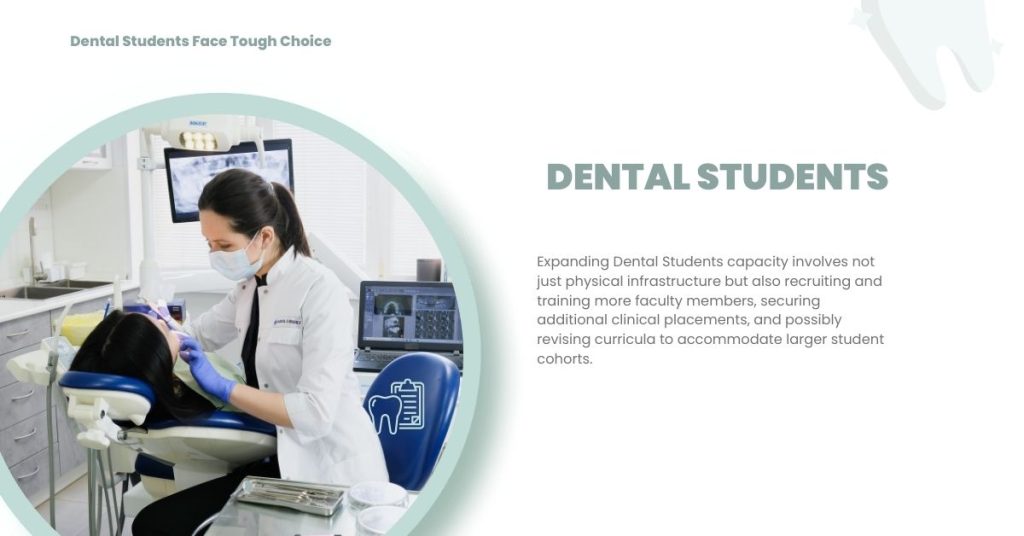Dental Students Face Tough Choice
In response to the overwhelming demand for dentistry degrees in England, students who have secured spots in oversubscribed programs are being offered £10,000 to transfer to universities with available places. This initiative aims to alleviate pressure on heavily subscribed dental courses.
However, universities caution that financial incentives alone will not resolve the underlying pressures facing many dental programs. Similar to medicine, Dental Students are experiencing a surge in applications coupled with an unexpected number of students achieving the requisite high A-level grades. According to UCAS, the university admissions service, 28,690 students applied to study medicine and dentistry this year—a 21% increase from the previous year.

A vice-chancellor from a leading university, who requested anonymity, shared concerns with the Observer: “We are oversubscribed in dentistry. Resolving this issue nationwide will be challenging due to the limited availability of clinical training spots. Additionally, many dental practices are struggling financially.”
In an attempt to address the immediate crisis, Education Secretary Gavin Williamson announced last-minute funding for hundreds of additional places in medicine and dentistry. Despite this funding, only a few Dental Students have been able to accommodate extra students due to logistical and resource constraints.
To address these challenges, the Department for Education has introduced a new “brokerage” scheme. This program allows medicine and dentistry students to claim £10,000 if they transfer from oversubscribed institutions to those with open spots. While the Dental Students Council acknowledges the scheme's effectiveness, dental academics anticipate a scarcity of available places.
The Department for Education’s new “brokerage” scheme allows medicine and dentistry students to claim £10,000 compensation if they transfer from oversubscribed institutions to those with available places. While the Dental Students Council has noted that the scheme is functioning effectively, dental academics predict a limited supply of spare places.
Andrew Hargreaves, co-founder of dataHE—a consultancy advising universities on admissions—echoed these concerns. He noted, “Medical subjects are always highly popular and selective. This year, an increased number of students met the admission requirements. One significant issue is the time needed to plan for additional training placements.”
Last week, Education Secretary Gavin Williamson announced emergency funding for hundreds of additional places in medicine and dentistry. Both fields have government-imposed caps on student numbers, and this funding aims to address the current recruitment crisis. Despite this, only a few Dental Students have managed to accommodate additional students.
Queen Mary University of London has secured extra funding to admit all students who met their offer criteria. Professor Paul Coulthard, the dean of dentistry, explained, “With the new funding, we can hire more staff. However, the real challenge for all Dental Students will be expanding clinical teaching facilities, such as increasing the number of dental chairs in partner hospitals. This is further complicated by ongoing Covid restrictions, which limit capacity and operational pace.
Professor Paul Coulthard, the dean of dentistry, explained, “With the new funding, we can hire more staff. However, the real challenge for all dental schools will be expanding clinical teaching facilities, such as increasing the number of dental chairs in partner hospitals. This is further complicated by ongoing Covid restrictions, which limit capacity and operational pace.”
Professor Coulthard highlighted that Dental Students have struggled to provide students with the necessary hands-on experience during the pandemic, which is crucial for their graduation. To mitigate this, academic staff have been working weekends and evenings to offer additional clinical skills sessions and clinics. Coulthard remarked, “These efforts have allowed students to gain essential clinical experience, preparing them for training posts this September. However, the staff are now exhausted.”
While the £10,000 transfer incentive and additional funding are steps in the right direction, significant challenges remain. Universities need to expand their clinical training facilities and manage the increased demand for dental education. This will require substantial effort and resources to ensure all students receive the comprehensive training they need.
Expanding Dental Students capacity involves not just physical infrastructure but also recruiting and training more faculty members, securing additional clinical placements, and possibly revising curricula to accommodate larger student cohorts. Long-term planning is essential to ensure that future waves of students can be accommodated without similar crises.
Comments (0)